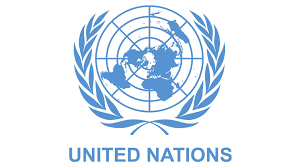The United Nations has said that Nigeria’s population growth is being constrained by unemployment and other economic challenges affecting the country’s youth.
In a message to mark the 2025 World Population Day, the UN Resident and Humanitarian Coordinator in Nigeria, Mohamed Malick Fall, expressed concern that many young Nigerians are unable to achieve their desired family size, not due to a lack of aspiration, but because of financial hardship, limited access to information and services, societal expectations, and fear of stigma.
He noted that girls, in particular, are denied the opportunity to decide if, when, and how many children to have due to early marriages, lack of education, and restricted access to contraception and youth-friendly services.
According to him, despite having immense potential, Nigerian youth continue to face barriers that limit their choices, especially regarding sexual and reproductive health.
Fall called for improved access to education and health services, promotion of gender equality, and the creation of decent job opportunities for young people to secure sustainable livelihoods.
Also speaking, the Chairman of the National Population Commission (NPC), Nasir Isa Kwarra, noted that global population growth is slowing, with many countries now facing declining fertility rates and aging populations — a trend referred to as “population collapse.”
Kwarra said the 2025 State of World Population Report shows that young people across the globe are not necessarily choosing to have fewer children as a matter of preference. Rather, many are navigating difficult circumstances, including uncertainty about the future, poor access to health services, lack of quality education and employment, unaffordable housing, and economic instability.
He assured that Nigeria is committed to addressing these concerns with empathy, innovation, and data-informed strategies. According to him, more than 60 percent or over 130 million of Nigeria’s estimated 216.8 million population are young people, whose dreams, potential, and aspirations must be placed at the heart of the country’s development priorities.
While acknowledging Nigeria as one of the few countries with a youthful and growing population, Kwarra emphasized that this presents an opportunity if properly harnessed.
“If properly harnessed, this demographic structure can fuel innovation, productivity, and inclusive growth,” he said. “But to achieve this, we must put the needs, voices, and aspirations of young people at the heart of our development agenda.”
He stressed that empowering young people is not an act of charity but a sustainable development strategy. This, he said, requires significant investment in quality education and skills development, sexual and reproductive health (including family planning), good governance, and youth participation.
“It also means investing in employment and entrepreneurship to create decent jobs, as well as strengthening data systems including regular population and housing censuses every 10 years to generate evidence that can track progress at both national and sub-national levels, and toward the Sustainable Development Goals,” he added.
2025 World Population Day is themed: “Empowering Young People to Create the Families They Want in a Fair and Hopeful World.”















